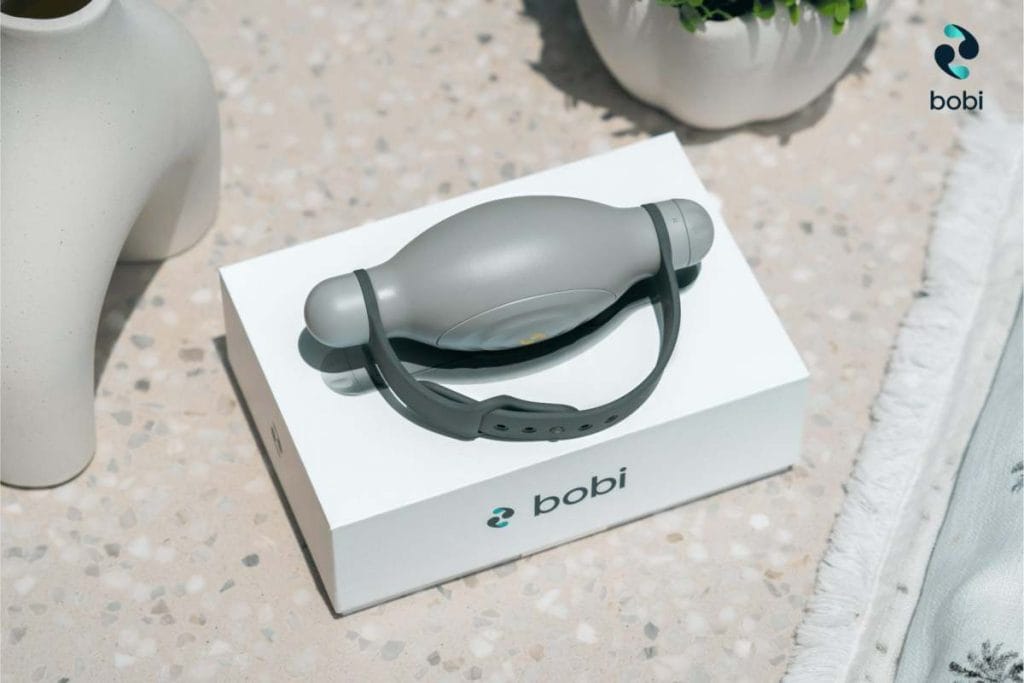
Breathing is widely considered one of the most crucial mind-body emotional regulation skills to help you master anxiety and cope with stress. Many of us take breathing for granted and never consider breathing as a powerful tool to handle our anxiety and stress. When we take conscious deep breaths, they work to alleviate the stress-hormones production like cortisol. Consequently, it activates the body’s relaxation response. Stick with us till the end to learn the science behind emotional regulation, factors influencing emotional regulation, and conscious breathing power in emotional regulation. Lastly, we’ll introduce you to a beauty called bobi _ a personal breathing tool designed to regulate your breathing patterns to empower you with emotional regulation.
Why do most people enter therapy with a psychologist?
The most common reason for seeing a psychologist is to help manage emotions. This includes sadness, anxiety, stress, anger and depression. The term emotional regulation, also known as self-regulation, describes a person’s ability to appropriately control one’s emotional state.
Emotional regulation is considered the skill of thinking before acting.
For example, take the case of an adolescent boy, Jake, playing an online computer game with friends. Jake’s character happens to die during gameplay and he becomes the focus of ridicule. Jake’s response is to launch the computer console at the wall and to scream profanities.
This story is one many households would be familiar with and is an example of emotional dysregulation. Emotional dysregulation is the uncontrolled expression of emotions, typically in response to a situation that is perceived to be inconvenient, uncomfortable, or stressful.
Some examples of emotional dysregulation include:
In my experience, emotional dysregulation can greatly disrupt relationships. Moreover, it is a predictor of substance abuse in late adolescence and adulthood.
Conversely, controlling one’s emotions has long been identified as a path to contentment and stability in life. The ancient Stoic philosophy, is considered to form the basis of modern cognitive behaviour therapy (CBT). Over time, it has endured and flourished owing to its emphasis on emotional regulation.
Perhaps the most famous of Stoic concepts currently used today is the ‘dichotomy of control’ (refer Epictetus). Put simply, this places emphasis on identifying the things that are within, and outside of, our control.
The chief task in life is simply this: to identify and separate matters so that I can say clearly to myself which are externals not under my control, and which have to do with the choices I actually control.
Epictetus, The Discourses

Unfortunately, many children don’t develop the capacity for emotional regulation without engaging in overt coaching or specialised education. Other factors can contribute to displays of emotional dysregulation, including if a child is on the autism spectrum, or has a diagnosis of attention-deficit/hyperactivity disorder (ADHD).
Previous studies suggest that up to 70% of adults with ADHD exhibit emotional dysregulation leading to emotional regulation adhd.
For neurodivergent children, the manifestations of emotional dysregulation largely contribute to social limitations. The ‘meltdowns’, sometimes associated with children on the autism spectrum, refer to an inability to effectively regulate emotional states. Behaviours associated with meltdowns often lead to a marked deterioration in relationships and a reduced quality of life within families.
A recent autism-related study identified the critical importance and impact of emotional dysregulation to adaptive functioning in children. Adaptive functioning simply refers to coping with everyday environmental demands. In this context, the development of emotional regulation skills may be viewed as a critical life skill for any child, but in particular, those who are neurodivergent.
Emotional dysregulation is also experienced by many adults. Outward expressions of physical aggression, such as road rage, are the most obvious examples of emotional dysregulation. However, emotional dysregulation incorporates a broad spectrum of emotions and behaviours that may include:
Many emotional regulation strategies are intrinsically taught to children, most commonly through observing the behaviour of others. For example, a child that grows up in a household where each member of the family displays respect and empathy will often develop positive coping behaviours when faced with adversity. Children learn by observing and this remains especially the case for emotional regulation.
Another core emotional regulation skill is the capacity to be self-aware, including through interoception. Interoception is defined as the perception of sensations from within the body that includes heart rate and breathing.
Recent scientific research has highlighted how our interoceptive skills do such crucial task. Simply our brain’s perception of our body’s state, can determine our susceptibility to depression and anxiety. People with anxiety may misinterpret a small change in their heart rate and immediately conclude some kind of threat is imminent. This overreaction is a hallmark of anxiety and is often observed as somebody ‘being on edge’ or ‘highly strung’.
Many children and adults have poor interoceptive skills. Fortunately, there are emotional regulation skills for adults. A few simple exercises, repeated often, can improve these skills.
A recent research study of autistic adults found that providing interoception training to the participants could effectively reduce anxiety.
In my experience, of all the strategies available for an individual to develop emotional regulation, conscious breathing (also referred to as slow or controlled breathing) is the most effective. In fact, most psychologists deploy conscious breathing techniques during therapy.
There are several key features of conscious breathing that directly impacts emotional regulation:
Conscious breathing should be considered the foundational skill for developing emotional regulation. If somebody is in a state of hyperventilation, psychological strategies will have little impact. Our fight-or-flight response triggers a cascade of physiological changes that are designed to ready the body for physical action. For this reason, it’s very difficult to initially think our way out of the triggering event.
The skill of conscious breathing is the most readily available, and the most effective intervention for calming our body’s response. By slowing our breathing we can exert a highly effective measure that is recognised by our brain as a sign of reassurance and safety.

The benefit of learning and engaging in conscious breathing is well-recognised within many parts of society, including schools. The challenge, however, is how to effectively provide education and training. So that more people can develop and utilise the skill of conscious breathing for use during times of stress.
Once somebody has developed the capacity to engage in the practice of conscious breathing it provides a sense of efficacy in relation to managing difficult emotions. Self-efficacy is simply the belief in one’s ability to succeed in a specific task. When you develop an understanding that you’re in control of your emotions, irrespective of the triggering event, remarkable changes in behaviours often follow. This is especially the case in how we communicate and interact with those around us.
The fundamental emphasis on how our thoughts determine our emotional responses – a central tenet of cognitive behaviour therapy (CBT) – develops as a feature of one’s capacity to self-regulate.
Developing the foundational skill of conscious breathing helps to challenge and change unhelpful thinking patterns. Having the capacity to consider a situation logically, prior to simply reacting, remains a core aspect of emotional regulation. Getting to that position, however, often involves engagement in a process which has conscious breathing at its foundation.
Incorporating tools like bobi can further enhance the practice of conscious breathing. bobi is designed to promote better breathing habits, serving as an effective device to help children and adults ground themselves and foster positive emotional responses during stressful situations. By integrating bobi into one’s daily routine, individuals can further harness the power of breathing for emotional regulation, ensuring a more balanced and controlled emotional state.
Breathing is a fundamental tool for emotional regulation, offering a direct pathway to manage anxiety and cope with stress. The article emphasizes the importance of conscious breathing in emotional regulation, highlighting its ability to immediately reduce stress and anxiety, stimulate the vagus nerve, override cognitive processes during agitation, and create a space between thoughts and actions. Conscious breathing acts as a foundational skill, allowing individuals to challenge unhelpful thinking patterns and respond logically to situations rather than reacting impulsively. If you want to cope with your anxiety effectively and want to see immediate results bobi is your go-to tool. Arm yourself and your little ones with its magical powers to strengthen their emotional regulation with its slow conscious breathing patterns. To enjoy your life to the fullest with the utmost power of emotional regulation, get your bobi from here!

Emotional regulation, also known as self-regulation, describes a person’s ability to appropriately control one’s emotional state. It is essentially the skill of thinking before acting and plays a crucial role in managing emotions like sadness, anxiety, stress, anger, and depression.
Conscious breathing, also referred to as slow or controlled breathing, is a foundational skill for emotional regulation. It helps reduce stress and anxiety, stimulates the vagus nerve, overrides cognitive processes during agitation, and creates a space between thoughts and actions, allowing individuals to respond logically to situations.
Emotional dysregulation is the uncontrolled expression of emotions, typically in response to stressful situations. It can manifest as angry outbursts, anxiety, depression, frustration, self-harm, and other self-damaging behaviors. It can disrupt relationships and is a predictor of substance abuse in late adolescence and adulthood.
Bobi facilitates the habit of better breathing, serving as a tool to promote conscious breathing practices. It aids in grounding individuals and fostering positive emotional responses during stressful situations.
While bobi can be beneficial for anyone looking to improve their emotional regulation through conscious breathing, it is especially helpful for children, helping them create a positive emotional response during times of stress or anxiety.
Stay updated on what's happening at bobi, and all things breathing, anxiety and mental wellness.